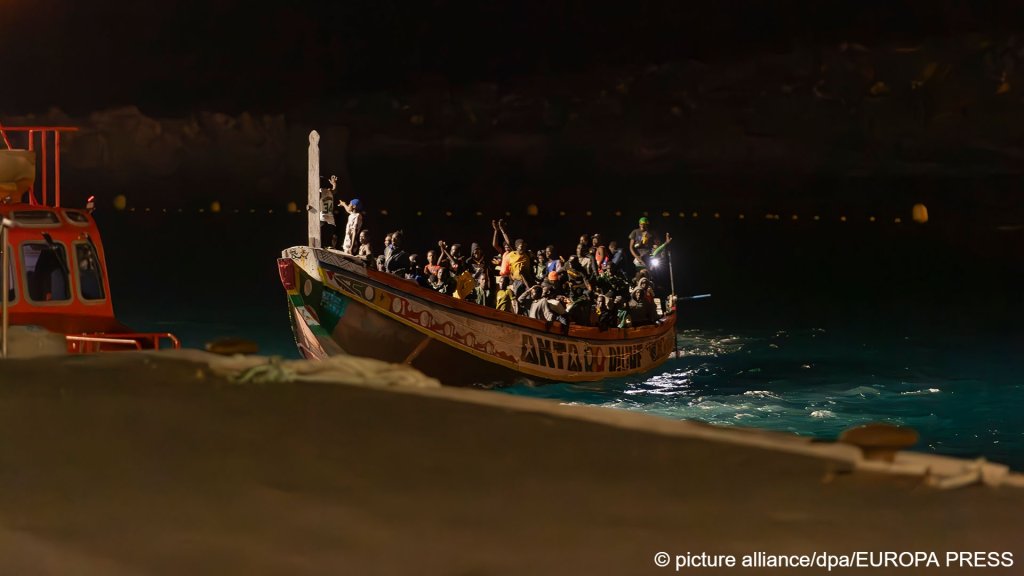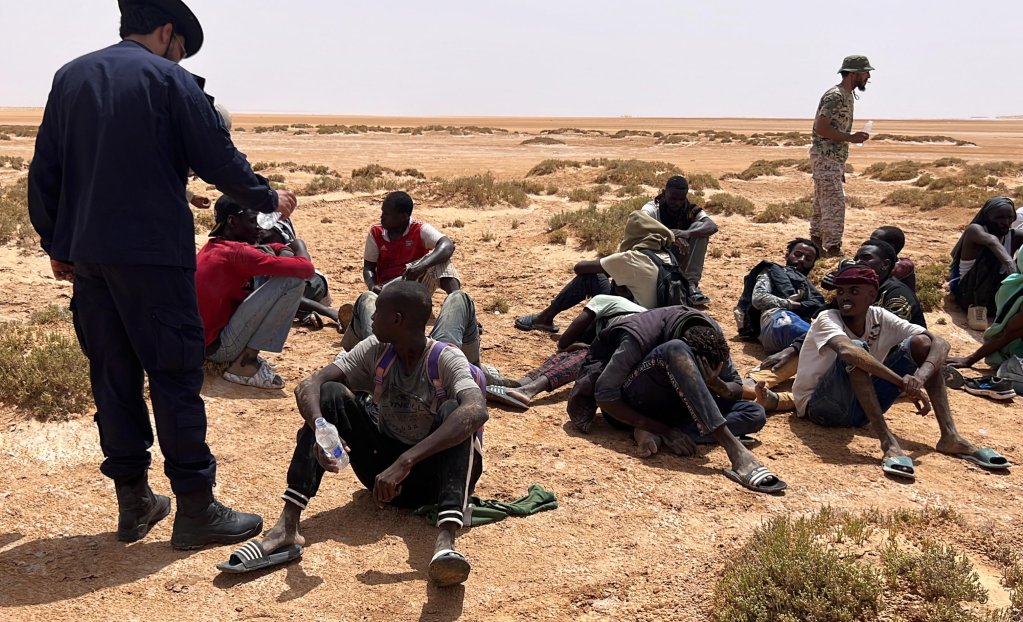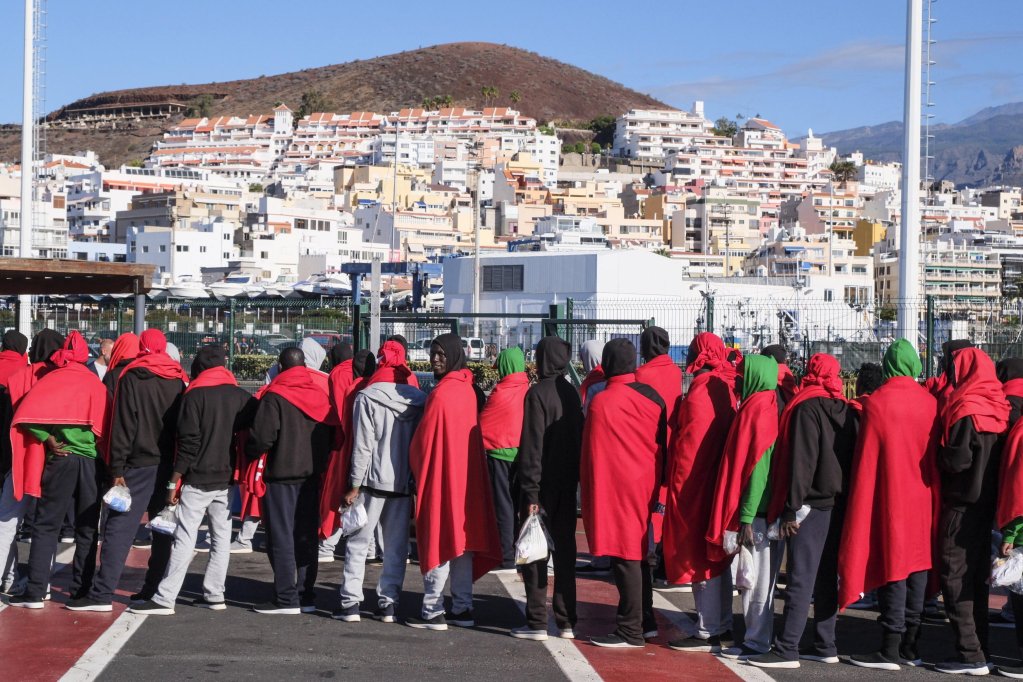In 2024, a record 10,457 people died or disappeared while attempting to reach Spain via irregular maritime routes, with the Canary Islands seeing the highest number of casualties.
In 2024, a record 10,457 people died or disappeared attempting to reach Spain via irregular maritime routes, a 58 percent increase from the previous year, according to a report titled The Right to Life 2024 by the NGO Caminando Fronteras. The majority of these victims (9,757) were heading to Spain’s Canary Islands, driven by EU-funded migration crackdowns in the Central Mediterranean and the ongoing war in Mali, which displaced thousands to neighboring countries.

Migrants who make these dangerous journeys across the Atlantic Ocean travel in overcrowded wooden boats called cayucos, with trips lasting from several days to weeks. These vessels frequently suffer engine failures, and many migrants succumb to hunger, dehydration, or hypothermia during the voyage.
Read AlsoSpain urges humanitarian action as Canary Islands struggle to host underage migrants
Migrants pushed to ever more dangerous routes
The rise in migrant deaths has intensified criticism of Spain’s border policies. Critics argue that Spain and the EU's focus on controlling migration has left migrants vulnerable to human rights violations, forcing many to take more hazardous routes following crackdowns in the Central Mediterranean.
The EU's practice of outsourcing border security to non-EU countries like Libya, Morocco and Tunisia, key transit points for migrants and refugees from Africa, has drawn significant controversy. The Spanish government, in collaboration with the EU, has allocated funds to strengthen border controls in these countries, often at the expense of migrant safety.

While these measures may reduce migration through certain routes, they frequently redirect migrants to more dangerous alternatives, such as the Atlantic crossing to the Canary Islands. Furthermore, UN agencies, Amnesty International, and Human Rights Watch have documented extensive human rights abuses in Libya, Tunisia, and other transit nations.
Migration to the Canaries has also been fueled by worsening conditions in Mali, where ongoing conflict has displaced over 200,000 people. As stricter border controls have made it harder to reach Italy via the central Mediterranean, many migrants have shifted to the Atlantic route.
Migrants from Mali arriving on the Canaries now surpass those from Senegal and Morocco. In response, the EU has pledged 210 million euros to bolster Mauritania's border control efforts, but reports of inhumane detention conditions in Mauritania have raised concerns about abuse and neglect.
Read AlsoSpain arrests traffickers accused of killing asylum seekers at sea
Arrivals in the Canary Islands continue
Despite the dangers of the Atlantic route, the Canary Islands continues to see a high number of arrivals, including minors. The archipelago saw a record 46,843 arrivals in 2024, with such high numbers overwhelming local authorities, especially in terms of resources to care for unaccompanied minors.
On Monday night (January 6), a cayuco carrying 143 Sub-Saharan migrants was rescued south of La Restinga, El Hierro. The following day, two inflatable boats with 73 and 68 migrants were rescued and arrived in Arrecife, while another cayuco with 75 migrants was rescued near La Restinga, according to maritime rescue services.
On Monday, maritime rescue services assisted a total of 363 migrants, who arrived by boat at El Hierro, Lanzarote, Gran Canaria, and Tenerife, according to RTVE.
One of these boats carrying 60 migrants was rescued on Monday morning in waters near Lanzarote, according to sources from Salvamento Marítimo. A woman and her baby, who was born during the journey and appeared to be in good health, were evacuated by helicopter to the island hospital on Lanzarote for follow-up care. The vessel was spotted by the ship 'Mina,' which alerted Salvamento Marítimo and assisted the boat until the Guardamar Talía arrived to carry out the rescue operations.

The president of the Canary Islands, Fernando Clavijo, stated on his social media that it was one of those days when the rescues in the Canary Islands waters continued without pause, including the birth that took place during the crossing.
Clavijo praised Salvamento Marítimo and everyone involved in the rescue, stating that they are "the heroes of a drama that still has no answers."
Read AlsoSpain: More migrant arrivals, regions overwhelmed
Limited benefits of Spain's migration policies
Spain, which has recently emerged from a long recession, has largely credited the economic upturn to migrant labor. Despite Spain’s public rhetoric on immigration, including Prime Minister Pedro Sánchez’s promotion of a circular migration policy, as well as a rejection of harsh anti-immigrant stances from countries like Italy, its own policies on its southern borders have been criticized for increasing risks to migrants’ lives.
Sánchez’s center-left government also rejected outsourcing asylum procedures in contrast to its EU counterparts, rather emphasizing migrant integration. However, it has also bolstered surveillance and interception operations, forcing migrants to travel further out to sea, thus increasing their risk of death according to Caminando Fronteras. The report highlights that search and rescue operations are often delayed or obstructed by Spain, Morocco, and Mauritania, further contributing to the loss of life.

In addition to the growing death toll, the fate of many migrants remains invisible, only about 4 percent of those who die at sea are recovered, and fewer still are identified. Families of missing migrants are left in limbo, with the remains often buried in unmarked graves. Caminando Fronteras attributes many of these deaths directly to Spain’s border policies, accusing the government of treating migrant lives as disposable.
Despite Spain's policies aimed at regularizing the status of migrants, and circular migration offers a safer alternative for some, its scale remains limited in addressing the systemic risks migrants face.
Read AlsoCanary Islands see Christmas surge in migrant arrivals amid deadly Atlantic crossings
